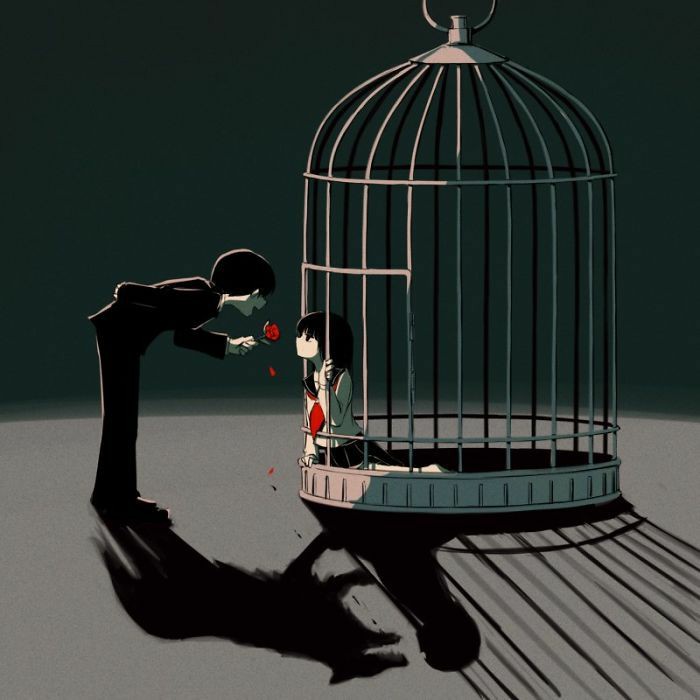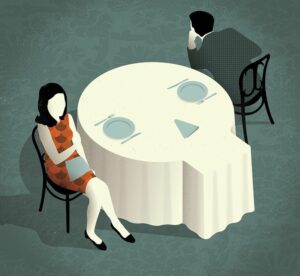
“Love is like a flame
It burns you when it’s hot
Love hurts”
Nazareth (“Love Hurts”)
I have googled all too often what love feels like. For my teenage brain riddled with various notions of love I’d picked up from movies, it was a tough job differentiating a silly crush from love. And if there’s one piece of advice the internet continually gave me, it was that love is supposed to hurt. Unfortunately, it is also the farthest from the truth.
Of course, love isn’t always rosy. It is impossible for two people in a relationship to always be happy with each other. Fights are normal, so long as they don’t spiral into hurting each other. In a healthy relationship, arguments pave way for an open dialogue and more transparency. However, when there is a lack of trust and understanding between the couple, it doesn’t take long for them to become toxic to each other. Gaslighting, scapegoating, manipulation are all forms of emotional abuse prevalent in unhealthy relationships. They are oftentimes hard to recognise because they’ve been normalised so much. A popular example is the relationship of Chuck Bass and Blair Waldorf from the series “Gossip Girl”. Both characters treat each other horribly and yet their relationship not only ends on a happy note but is also considered ideal by many viewers.
One trope that is far too common in literature and cinema alike is that of a kind-hearted girl “saving” a stone-hearted boy. The earliest expose to the same is the tale of Beauty and the Beast. In more recent years, the books After, Fifty Shades of Grey and their movie adaptations run along the same lines— the boy continually mistreats the girl, who bears the abuse until he falls in love with her. His behaviour is forgiven and never addressed.
This trope also directly leads to that of a “possessive” boyfriend. An arrogant man dictating his partner’s choice of clothes, friends, career etc. It especially gained a lot of infamy after the release of the movie “Arjun Reddy” and its other adaptations. Had the movie asked young women to be wary of such men, it would’ve been fine. Yet his actions are treated as heroic, and we are asked to believe that his abuse is an expression of “passionate love”.
It would be incorrect to generalise this behaviour to a particular sex. In the highly praised movie Gully Boy, we find the character of Safeena deeply mistrusting her boyfriend and retaliating aggressively out of jealousy. Still, a toxic boyfriend and his spineless girlfriend are typically portrayed more often. Teenagers, who are the primary consumers of this type of content, are highly impressionable and a portrayal such as this has major implications. Young boys are made to believe that stalking and stoicism is the way to a girl’s heart. Young girls feel that it is okay for their partners to control their lives and that their love alone can soften a man.
The character of Joe Goldberg from the Netflix show “You” repeatedly indulges in stalking and violence, which he justifies as coming from a place of love. Despite repeated warnings from the makers of the show that his character is not to be sympathised with, several people romanticise his behaviour. These damaging ideals have raised hordes of unhappy couples. Men who suppress their emotions to favour a more macho exterior. Women who stay in abusive relationships for the minuscule possibility that their partners will change. Sometimes people erase entire personalities to conform to their partner’s wants. All of this—in the name of love.
It’s the festival of St Valentine and we are surrounded by people celebrating all kinds of relationships. It is important to remember that love is not meant to hurt. Whether you are a 14-year-old holding hands for the first time or a sixty-year-old divorcee feeling the butterflies in her tummy again, real love makes you feel safe. It forms the gateway to happiness and personal growth. Unlike the idea that sells most movies, love doesn’t have to be all-consuming. In healthy relationships, people retain their individualities as they navigate the ups and downs of life with their partners. There will of course be days when you’re not on the same page. But even on those days, the feeling of security and gratitude does not change. And love doesn’t demand great sacrifices. It lies in the little things— like a date at the grocery store or a reminder to take your medicines or even just a tight hug at the end of a long day. So to equate love with toxic behaviour would be the greatest disservice to society.
Now that I’m no longer a gullible teenager, I do a better job at identifying red flags in pop culture, but I wonder how many kids look at their TV screens and emulate tolerance for toxic behaviour, how many children grow up, thinking that abuse is also an expression of love. It is high time we made art where the heroine puts herself, stops trying to “fix” the man and the hero uses therapy to turn over a new leaf. It’s high time we portrayed love, as it’s meant to be: an emotion that evokes happiness and not pain.
Written by Ishita Sharma for MTTN
Edited by Medha Somayaji for MTTN
Featured image by Avogado6
Artwork by Neil webb

Leave a Reply
You must be logged in to post a comment.